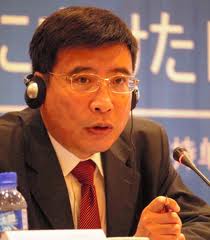Dickinson to Durban » Climate Change » Can a Second Commitment Period to the Kyoto Protocol be Agreed in Durban?
Can a Second Commitment Period to the Kyoto Protocol be Agreed in Durban?
By Neil Leary
 Su Wei, head of the Chinese delegation, speaking at a side event of the South Centre on 5 December, stated that the mandate for Durban is to accomplish what was agreed in prior conferences in Bali and Cancun. Top on the list for China is agreement on a second commitment period under the Kyoto Protocol. China’s position is that the COP must take a positive decision at this meeting on a second commitment period for Annex 1 countries. Without such an agreement, the Kyoto Protocol dies in Durban, and that cannot be allowed to happen, according to Wei. When pressed by a member of the audience on differences between China and the US on this issue, and what they imply for the future of the protocol, Wei responded that a second commitment period is “a must in Durban” and that without an agreement on this issue, the broader talks would collapse.
Su Wei, head of the Chinese delegation, speaking at a side event of the South Centre on 5 December, stated that the mandate for Durban is to accomplish what was agreed in prior conferences in Bali and Cancun. Top on the list for China is agreement on a second commitment period under the Kyoto Protocol. China’s position is that the COP must take a positive decision at this meeting on a second commitment period for Annex 1 countries. Without such an agreement, the Kyoto Protocol dies in Durban, and that cannot be allowed to happen, according to Wei. When pressed by a member of the audience on differences between China and the US on this issue, and what they imply for the future of the protocol, Wei responded that a second commitment period is “a must in Durban” and that without an agreement on this issue, the broader talks would collapse.
Asked if it is possible to leave the US behind and reach agreement with other parties on the Kyoto Protocol, Mr. Wei said climate change is a global challenge and China does not want to leave anybody outside the discussions. Yet, China and other parties cannot wait for some (meaning primarily the US) to take action before others move forward. Mr. Wei would put the question to the European Union. Are they ready to move forward on the Kyoto Protocol without placing conditions on developing countries? For China, the first order of business is to complete the work begun in Bali and on the Kyoto Protocol, before jumping ahead to new things. He appealed to developed countries to look forward and not backwards. If they do, they will see that developing countries are acting on climate change: “You are behind. Please catch up.”
In his closing comments, Mr. Wei said (approximate quote): We must move forward. We hope everyone will be on board and engaged. But we cannot wait for everyone. We have to move on.
It would appear that China is holding out hope for agreement on a second commitment period for the Kyoto Protocol. Whether this is realized will depend on flexibility by the European Union, China and others on the question of whether, and if so in what form, large emerging economies such as China would constrain their emissions. A quantified emission limit for China and other developing countries is clearly unacceptable to developing counties at COP17. Are there other approaches, such as agreement on emission constraining policies or measures without quantified limits for China and other emerging economies that might be accepted? Nothing in Mr. Wei’s comments suggested any flexibility from his side.
Filed under: Climate Change








Interesting update and relevant to my research on KP2 and LBI. One question: do you know anything about China saying over this past weekend that it would be willing to accept a legal commitment for itself as well? I heard people (including a speaker) mention this, and it is important to verify/understand it.